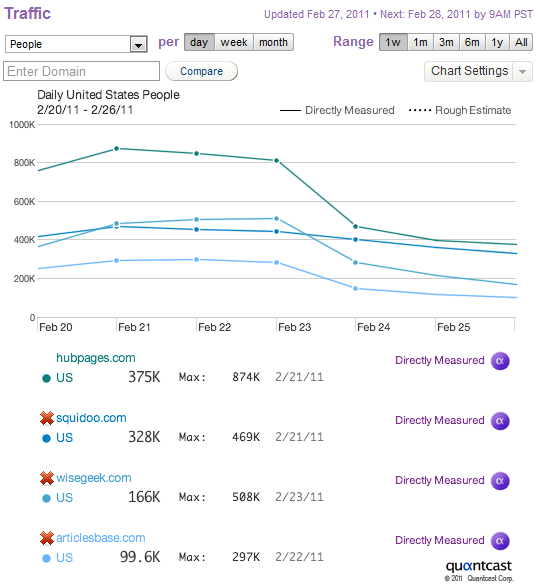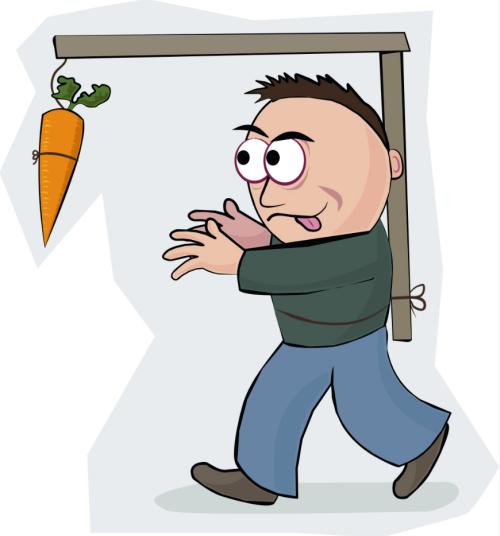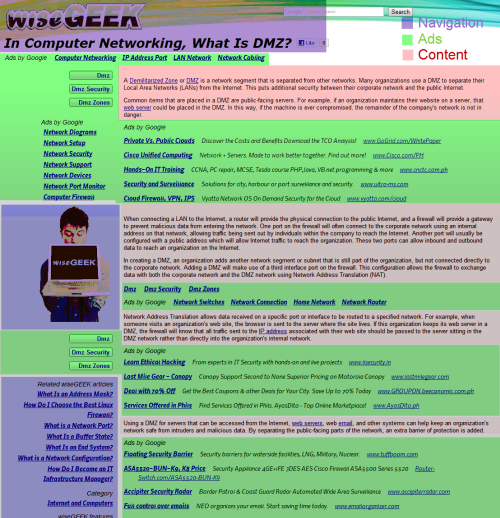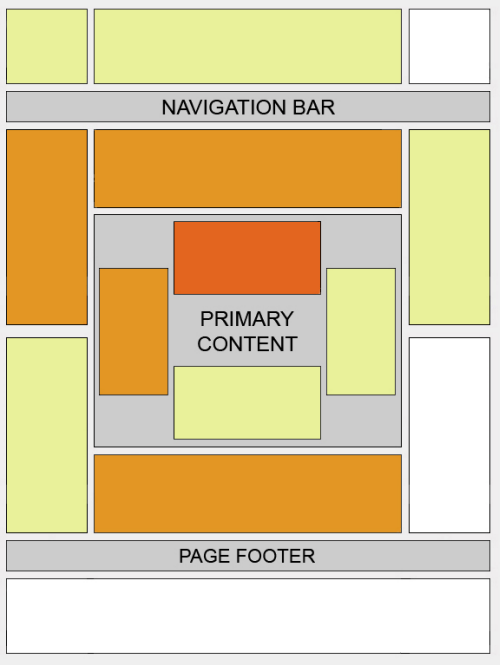When Best Practices Lead to Miserable Failures
How often do you ever hear the phrase worst practices? Probably never.
Everything is a best practice approach, right up until things change.
Consider AdSense websites.
Hey Look, a Case Study!
When you look at some of the biggest losers in the Google content farm update, many of them happened to be premium AdSense publishers which were even used by Google as case studies! For instance, Hub Pages or EzineArticles.

Everyone thinks that their content is the cream of the crop & that they will bounce back:
We are confident that over time the proven quality of our writers' content will be attractive to users. We have faith in Google's ability to tune results post major updates and are optimistic that the cream will rise back to the top in the coming weeks, which has been our experience with past updates - Paul Edmondson
The problem is that for many businesses there will be no bounce back. Some are simply over. The web has evolved & the algorithm has moved beyond them.
Where is the Much Needed Disclaimer?
What makes this worse is that when Google gives a site their premium AdSense feed & sets something up as a case study others will see that as an explicit endorsement.
THIS IS HOW YOU SHOULD DO IT.
Even after Google torches the companies that follow Google suggested best practices those case studies live on, offering what now amounts to maps to Google hell.
Adding Insult to Injury
What makes such filters/penalties even more infuriating is that in some cases when your site is slapped with a negative karma penalty, others who steal your content & wrap it in AdSense will outrank you, since their site does not yet have a negative karma penalty against it. :)
Individually the splog sites may not live long, but collectively they can keep outranking you to ensure you are invisible for your own words, even if you poured years of your life into creating something beautiful & important.
As Cult of Mac reports:
As we noted yesterday, Cult of Mac was collateral damage in Google’s war on crappy content farms. For some inexplicable reason, we got downgraded when Google tweaked its algorithms last Thursday.
But today we’re back in. We’re on Google News (a very important source of daily traffic) as well as Google’s general search results. However, we still get outranked by some of the scraper sites that steal our content, so not everything’s perfect.
That part in bold is the most outrageous part of this new "algorithmic" approach. When Google whacks your site then someone who steals your content will outrank you. And most sites stealing content *are* monetized via Google's DoubleClick & AdSense ads.
That whooshing sound you just heard was MFA sploggers making a mad dash to steal content from the list of currently penalized sites.
Cult of Mac is lucky they had enough pull with the press to get reconsidered. Most webmasters who got hit did not & anyone who has contracts based on set traffic levels or tight margins which just turned negative are in a pretty crappy situation. Yet another example of the importance of not fueling growth with debt & the importance of profit margins and a cash-on-hand safety net.
Who Are the Opportunistic Maximizers?
The problem with such an approach of maximizing everything you do to suck peak revenue out of the pageview is that things can change on a whim. I have seen some of Google's 1 on 1 AdSense optimization advice they sent to a friend of mine. I told my friend that the optimization advise was at best short-term opportunism that would end up crushing them in the long run if they actually implemented it.
Google doesn't care if following their advice torches your site if it makes them a bit more money, because ultimately there is another person standing in line waiting to follow.

My friend is lucky that they realized my advice was more trustworthy than the advice they were getting direct from Google. If they listened to Google back then their business might be destroyed today.
Google likes to position SEOs as exploiters out for the quick buck, but what honest analysis shows is that it is Google which is pushing the boundaries in terms of:
- monopolitistic bundling
- fair use / copyright
- trademark
- pushing deceptive ads
Google AdSense has a "get rich quick" ad category. That is something you won't find on our website (and one of the reasons we will never put AdSense ads on this site)!
AdSense Heatmaps? Look Out Below!
One of the worst hit sites in the AdSense farm update was WiseGeek. Sure WiseGeek must have had something like a 20% ad clickthrough rate. But with traffic falling 75%, maybe they would have been better off building a cleaner experience with a 5% CTR.

That said, they were simply following Google AdSense best practices:

Collateral Damage
What was the most profitable best practices based approach suddenly falls short. And the results are not always predictable. When Google decided to attack content farms who honestly knew that:
- somehow eHow.com would survive
- yet somehow Google's "algorithmic" approach would punt 10,000's of smaller websites that have far higher content quality
In advance of the solution I was fairly certain eHow would survive, but what I underestimated was the Google engineers. Or rather the ignorance of same. I simply couldn't imagine such a content farm algorithm going live that missed eHow and decimated the lives of so many independent webmasters.
I guess we can simply view this as an extension of Google's you can have any web you want so long as it is corporate TM policy. I think Brett Tabke said it best in a recent AdSense thread:
When the rules and the enforcements are made up by monopolies in a make believe world - there is no cheating.
The only "cheatings" is when it gets outside the lines of the law. - Brett Tabke
After the farmer update layoffs are already happening. Not only for monolithic useless content mill websites, but even in organizations where the content is pure as the driven snow.
AskTheBuilder is yet another Google AdSense case study. In spite of being a niche player well regarded in his community, Sistrix data shows the site off 87% after the most recent Google update!
Who Caused the Content Farm Problem?
Everyone likes to vilify the content farms and scrapers (and they deserve it) but the real villain behind all of this is CPC/CPM based advertising.
Can you imagine a world where your attention was sold off based on how long you stayed on a page rather then how often you switched pages? If google wants to fix their search results, they should focus on fixing adsense. The technology to more accurately measure a viewer's exposure to an ad are there, it just needs a trustworthy player to bring it to market. Someone trusted by both users and advertisers.
Google made click/impression-based advertising appealing to both groups and it made them what they are now. It's time to get away from it. - po
Smokescreen & Misdirection
I have long highlighted that Google's algorithmic-centric approach was blindingly hypocritical & that I felt the approach was nothing more than a scammy cover though which they can selectively exercise editorial discretion while claiming that "the algorithm did it."
Consider the following scenario:
- roll in an algorithm that aggressively penalizes tons of borderline edge cases
- see who complains to the media & has connections with the media
- fix the rankings of those who you like & those with sway, while ignoring the rest
Can You Trust Google?
All of this leads to the obvious question: can you trust Google?
The short answer is yes.
The long answer is you can *always* expect Google to do what is in the best interest of Google. As they plow into field after field (payments, local, mobile, ecommerce, mortgage, credit cards, travel, weddings, fashion, etc.) & use their search dominance to manipulate other markets one would have to be blind to view Google as anything other than a competitor.
Maybe not today. Maybe not tomorrow. But some day they will come. And it is never fun when it happens to you. :(
Until that day may come, if you always follow their best practices, just remember ... ;)

Don't say you were not warned!




Comments
Man Aaron, this hits it square.
To me, the problem has never been the bad content itself - the problem is that Google has monetized bad content to a point where lives now depend on it. Or did. If it were not profitable to churn crap, it wouldn't happen.
The cesspool is something Google created, then warned about as it spiraled out of control, and is now forcing the rest of the world to swallow. Treading water here is even becoming unattractive, because it is really simply waiting for the other shoe to drop, and watch as Google enters, and rearranges YOUR vertical.
Yipes.
It would be interesting to see heat maps like the WiseGeek one above of the major sites that were winners / losers in the update. Lots of people are talking about ad or link to content ratio as one of the triggers and I still believe that the ratio of ad links / internal links / external nofollowed / external followed links is part of it as well. That theory is admittedly pure suppostion on my part from observation and I don't have data to back it up (and being an inhouse SEO that didn't get hit rather than a consultant or journalist, I don't have time to actually measure the content or link ratios on the various affected and unaffected pages). I think there were likely changes to several factors as the amount of duplicate versions of the site content seems to be a factor as well, with Google sucking at determining the actual originator of the content.
One commenter in a different forum pondered why AskThe Builder got nailed. He has two of the factors I mention above 1) lots of ad links (not just adsense) and few authoritative followed out links 2) He looks to have purposely published his content in several places. While the second seems like a good idea for coverage and visibility he's published it not only on his own site but on several blogs and on an authoritative newspaper site where he writes a column. By publishing in all those places he's essentially "scraped" himself and published the content on a newspaper site that has much higher authority than his own. It no wonder that Google can't tell which is the canonical version.
Sorry, kind of got off topic for this particular post but not for the larger subject....
I've complained about Adsense being the problem for a long time. From my own experience, no matter what is said in the large public forum, Google pays attention when someone is earning money for them and will make concessions to keep them happy. So, in the case of eHow, they must make Google, very happy.
All the algorithms, posturing, etc. is just fluff. To fix the problem, take the money out of it. If there's no money in it, people will leave. A major overhaul to Adsense would solve a great deal of this. This could be accomplished through minimum earnings, CTR targets – lots of different things.
Google can flex their muscles here because they control the traffic. In that regard, its no different than brick and mortar. Wal-Mart can force you to take lower margins on your item because they have such a huge volume of customers. Its up to you to decide if you want to play their game though. If you want to play with Google, it seems you are going to have to be willing to tolerate a lot of nonsense in the hopes that it will pay off.
For many years, we have all sat back and allowed Google to take a position of dominance online, they have taken advantage of publishers, they have taken advantage of Advertisers, they have made Billions on the backs of hard working Webmasters, The Internet Does not Belong to Google
The Internet Belongs to the People and to the Webmasters, the Publishers, the Bloggers, Hosting companies, Website designers, Programmers.
It is time to start the process of reducing and eliminating Google, some people think that google has become too powerful, but that is not true, take away the publishers, and the bloggers, and google has one less leg to stand on.
It is time to X out Google because if we cannot trust them to do the right thing for publishers we cannot trust them to do the right thing when it comes to everything else.
Add new comment